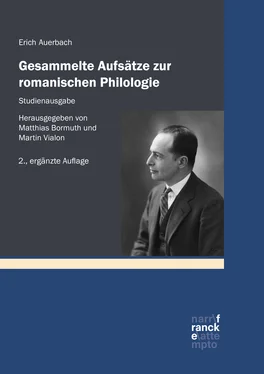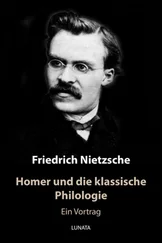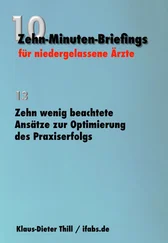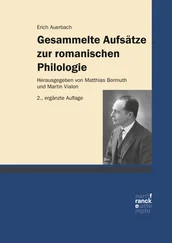(a) In the classical examples, the tu anaphoraAnaphertu-Anapher, as far as I know, was used exclusively in eulogies. Now, it appears in other contexts, very often in the supplicatio supplicatio , as in PrudentiusPrudentius’ hymnHymne ‘Ales diei nuntius’:13
Tu, Christe, somnum disice,
Tu rumpe noctis vincula,
Tu solve peccatum vetus,
Novumque lumen ingere.
This use continued during the Middle Ages; as an example I quote some verses from Thomas AquinasThomas v. Aquin’ ‘LaudaLauden, Sion, Salvatorem’:14
Tu nos pasce, nos tuere,
Tu nos bona fac videre …
As further evidence that the tu anaphoraAnaphertu-Anapher has enlarged its function there appears a new form, unknown to the Greek and Roman tradition; its characteristic feature is the expression of convergent adoration, emanating either from different organs of a single human being, or from a community, or else from all rational beings. The following example of the first case is taken from St. Ambrose’sAmbrosius, hl. hymn ‘Deus creator omnium’:15
Te cordis ima concinant,
Te vox sonora concrepet,
Te diligat castus amor,
Te mens adoret sobria …
Of the second case, the repeated expression of convergent adoration of a community, the most famous example is the beginning of the ‘Gloria’ of the mass: Laudamus te, benedicimus te, adoramus te … I found another very early example in a prayeLobreder recorded by Lactantius;16 it is the hymnHymne which Emperor LiciniusLicinius (Kaiser) ordered his troops to sing before the battle against Maximinus DaiaMaximinus Daia (A. D. 313):
Summe Deus, te rogamus,
Sancte Deus, te rogamus,
Omnem iustitiam tibi commendamus,
Salutem nostram tibi commendamus,
Imperium nostrum tibi commendamus;
Per te vivimus,
Per te victores et felices existimus;
Summe sancte Deus,
Preces nostras exaudi;
Bracchia nostra ad te tendimus.
The hymnHymne ‘Te Deum laudamus’ presents a transfition from this second form to the third, in which the entire creation or the entire Christian universe joins in the adoration:
Te Deum laudamus, te dominum confitemur,
Te aeternum patrem omnis terra veneratur,
Tibi omnes angeli, tibi caeli et universae potestates,
Tibi Cherubim et Seraphim incessabili voce proclamant:
Sanctus sanctus sanctus Dominus Deus Sabaoth;
Pieni sunt caeli et terra maiestatis gloriae tuae;
Te gloriosus apostolorum chorus,
Te prophetarum laudabilis numerus,
Te martyrum candidatus exercitus,
Te per orbem sancta confitetur ecclesia …
The various forms of this ‘convergent adoration’ survived in the Middle Ages;17 it has an invocational rather than a eulogistic character. True, similar forms exist in classical eulogies such as HoraceHoraz’s ode to AugustusAugustus18 in which the conquered peoples are mentioned as adoring the emperor ( compositis venerantur armis ) . It is, however, an enumeration of certain peoples, with others excluded, and it probably has its origins in the mention of sanctuaries and residences of the divinity concerned; this kind of enumeration is widespread in classical eulogies,19 but its function is clearly distinct from the convergent universal adoration of the subsequent Christian examples.
(b) Another change concerns not the form, but the substance of all kinds of eulogies, not only those introduced by the tu anaphoraAnaphertu-Anapher. Greek philosophy and rhetoricRhetorik fused with the very intense and manifold religious movements of the first centuries after Christ; the eulogies became abstract and metaphoricalMetapher; they reflect the dogmatic controversies and the refinements of Greek figures of speech and thinking. ApuleiusApuleius’ prayeLobreder to Isis20 is purely rhetorical; NordenNorden, E. quotes the following (NeoplatonicNeuplatonismus) verses of TiberianusTiberianus (fourth century):
Tu genus omne deum, tu rerum causa vigorque,
Tu natura omnis, deus innumerabilis unus …21
This is a play with the antitheticAntithese concepts ‘one’ and ‘all’, presented in identically constructed members of sentences. In Christian poetry, the antithetic parallelism of Greek rhetoricRhetorik serves to express the fundamental paradoxes of faith: three and one, God and man, creator and creature, logos and flesh, sublime and humble, passion and glory, death and resurrection, mother and virgin, and so on. Indeed, there are dogmatic passages in the eulogies without antithetic turns of expression, such as the following:22
Tu lumen, tu splendor patris,
Tu spes perennis omnium.
Yet this same hymnHymne contains some antithetic statement in the invocation ante principium natus ). The following verses of PrudentiusPrudentius23 are antithetic, but lacking in paradoxes:
Tu lux vera oculis, lux quoque sensibus,
Intus tu speculum, tu speculum foris …
A typical example of a hymnHymne with paradoxical antitheses occurs in Ausionius’Ausonius Ephemeris , where the eulogy has the pattern of a series of relative clauses:24
… generatus in illo
tempore quo tempus nondum fuit …
quo sine nil actum, per quem facta omnia …
The best specimen for our purpose is offered by ‘Laus Christi’ attributed to Claudianus.25 Here, the first part of a long eulogy is composed in relative clauses, the second with tu anaphorasAnaphertu-Anapher. The first part contains almost nothing but antitheticAntithese formulas; the most striking ones appear in italics:
Proles vera Dei cunctisque antiquior annis,
Nunc genitus qui semper eras , lucisque repertor
Ante tuae matrisque parens : quem misit ab astris
Aequaevus genitor verbumque in semina fusum
Virgineos habitare sinus et corporis arti
Iussit inire vias parvaque in sede morari
Quem sedes non ulla capit ; qui lumine primo
Vidisti quidquid mundo nascente crearas;
Ipse opifex, opus ipse tui , dignatus iniquas
Aetatis sentire vices, et corporis huius
Dissimiles perferre modos hominemque subire
Ut possis monstrare deum , ne lubricus error
Et decepta diu varii sollertia mundi
Pectora tam multis sineret mortalia saeclis
Auctorem nescire suum …
This fusion of Greek antitheticAntithese rhetoricRhetorik with the paradoxes of the Christian faith has become one of the basic elements not only of mediaeval Christian poetry, but of the entire poetical language in Europe. In DanteDante’s prayerLobrede, some of the formulas of the Laus Christi appear almost verbatim: figlia del suo figlio, suo fattore non disdegnò di farsi sua fattura .
(c) A third important change in the content of the eulogies is revealed in the continuation of the same ‘Laus Christi’; this second part is composed in tu anaphorasAnaphertu-Anapher:
Te conscia partus
Mater et attoniti pecudum sensere timores.
Te nova sollicito lustrantes sidera visu
In caelo videre prius, lumenque secuti
Invenere magi. Tu noxia pectora solvis
Elapsasque animas in corpora functa reducis
Et vitam remeare iubes. Te lege recepti
Muneris ad Manes penetras mortisque latebras
Immortalis adis. Nasci tibi non fuit uni
Principium finisque mori, sed nocte refusa
In caelum patremque redis rursusque perenni
Ordine purgatis adimis contagia terris.
Tu solus patrisque comes, tu spiritus insons,
Et toties unus triplicique in nomine simplex.
Some verses of this text seem to be much nearer to the mythical eulogies of Greek and Latin poetry, not only on account of the hexameters, but because there are events to be recorded. In sharp opposition to the Jewish God, Christ, by his incarnation, has an earthly history; so have the Virgin, the Apostles, and the Saints. The poet of ‘Laus Christi’ rather summarily records the most important features of Christ’s history: the nativity (with the adoration of the Magi), miracles, descent to Hell, and resurrection. He could have made a eulogy of Hercules in almost the same style.
Читать дальше












